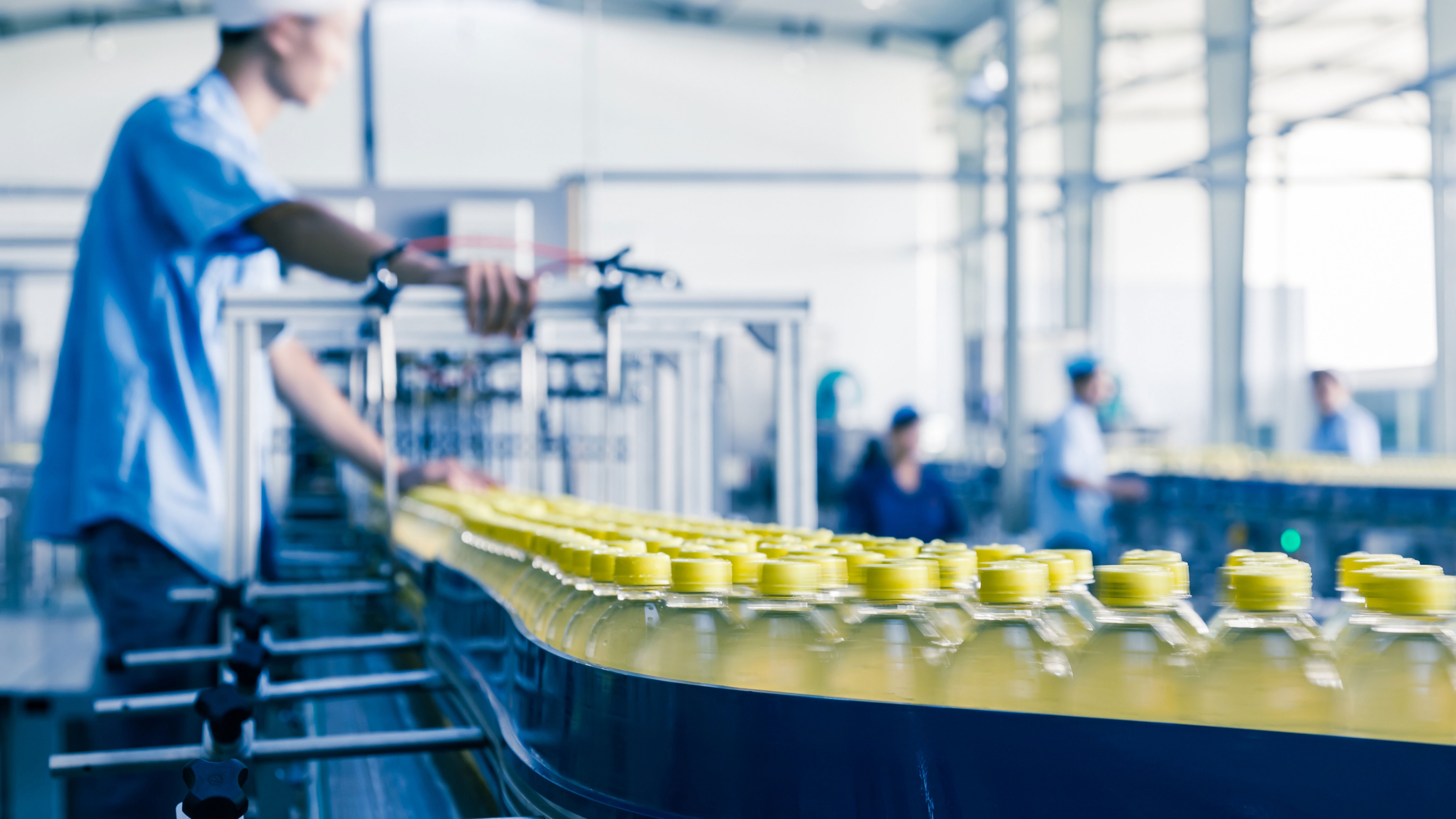Optimized Dairy Production
One of Asia’s largest dairies recently underwent an expansion with a key focus on process optimization, labour reduction and faster time to market. In addition, the control systems of various plants would need to integrate with the systems in the dairy. The plant required greater visibility and productivity, while optimizing resources including water, air, gas, electric and steam (WAGES).
Given the scope and complexity of the project, the dairy recognized they needed a single vendor to manage the design and implementation of the control system. The dairy selected Rockwell Automation due to its extensive experience in automation and global reach to manage the entire project from initial design through engineering and implementation.
The solution included seamless integration on a single EtherNet/IP network; process optimization by deploying controller-based modular predictive control (MPC) on the pasteurizer; real-time energy monitoring; scalable engineering practices and standardization.
The Rockwell Automation Global Solutions team implemented a batch solution that monitors and controls 50 LLPD of milk daily. This solution was built on the PlantPAx® distributed control system using a common control engine with a common development environment to provide high performance in an easy-to-use environment.
ControlLogix® L7X controllers from various plants were integrated on one EtherNet/IP plant-wide network and E300™ electronic overload relays delivered better motor control, protection and predictive diagnostics. The system’s tight integration between the programming software, controller, and I/O modules reduced development time and cost at commissioning and during normal operation.
The new solution provides the flexibility for operators to create and run different recipes, specify daily production rates and run multiple batches in parallel via the batch production entry system. In addition, it provides access to real time information and monitoring, allowing the plant manager to have complete and accurate production information at any given time and the ability to provide performance, quality and material reporting.
The dairy is now reaping the rewards of the solution with increased productivity from five to 5.5 million liters per day.
Global Tracking for Food Safety
The pressure is on globally to increase traceability in the food supply chain. Implementing a supply chain track and trace system can help you comply with these emerging regulations and help protect your products against potentially dangerous counterfeits and supply chain diversions.
Recently, L’Aromatika Srl – Caffè Borbone, an Italian leader in coffee production, created a widespread tracking system where global tracking starts from the coffee bean and ends at the coffee pod.
Starting out as a partial tracking project, after subsequent developments the application is now a perfect example of digital transformation. To implement this project, Bibit – an Italian information technology company – called upon the services of Rockwell Automation, which provided the basis for creating an Industry 4.0 environment.
L’Aromatika relied on a system composed of PC terminals, limited to recording the generation of pallets. This system provided a printed label at the end of the production cycle that did not include any information about upstream activities.
Continuous growth in the company and the need to comply with strict standards applicable to the food industry caused the company to automate the process. It had to deploy tools to monitor all events occurring along the line, establishing the foundations for real-time tracking. Once this was achieved, L’Aromatika decided to further expand the project to reach a machine-level tracking system, interfacing all of the printing systems up to packaging.
The solution is centred on the Rockwell Automation Integrated Architecture system supplied to the customer over the course of the project’s two year development. It comprises two Allen-Bradley CompactLogix 5370 series controllers, thirty remote Allen-Bradley POINT I/O modules, plus another six for the coffee producers. All these components communicate with one another and servers through an EtherNet/IP network.
The network infrastructure with an EtherNet/IP protocol allows the PACs to also automatically manage warehouse consumption, production and coffee making levels, with the amounts of raw and processed coffee being unloaded. In addition to providing tracking data, the PACs that communicate with an intermediate server transmit the same data to the accounting software for recording of semi-processed loads, finished product in the warehouse, and unloading of components.
A key success of the project for L’Aromatika was the attainment of ‘IFS Food’ food safety certification, which is proof of thorough, widespread tracking, and in this sector represents a mandatory condition for operating according to a series of commitments, such as, for example, large scale distribution.
Thanks to the adopted solutions, L’Aromatika can now track the entire process from start to finish, from receiving the coffee, when it is registered and associated with a specific lot, to loading at the coffee maker company and the first blending operations.

